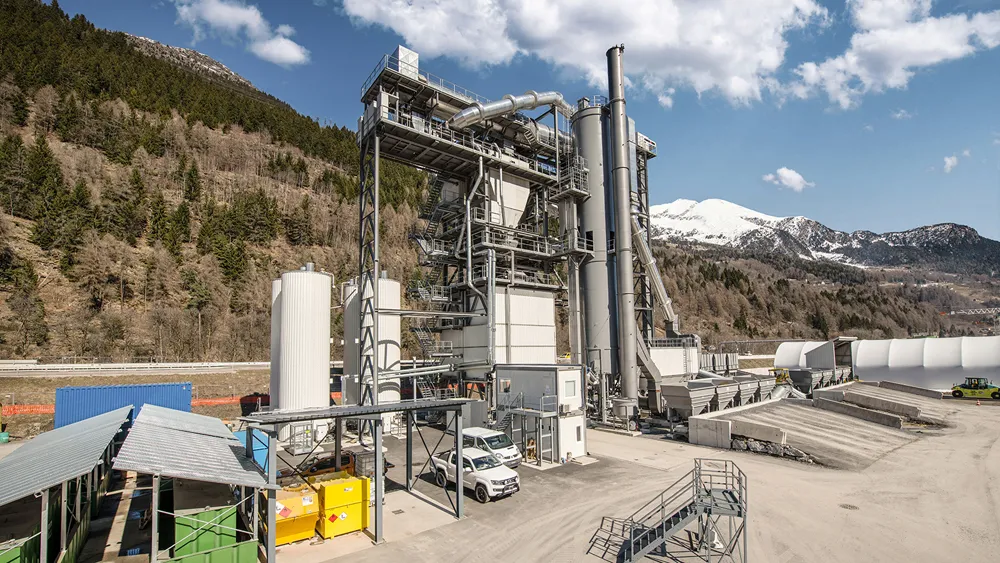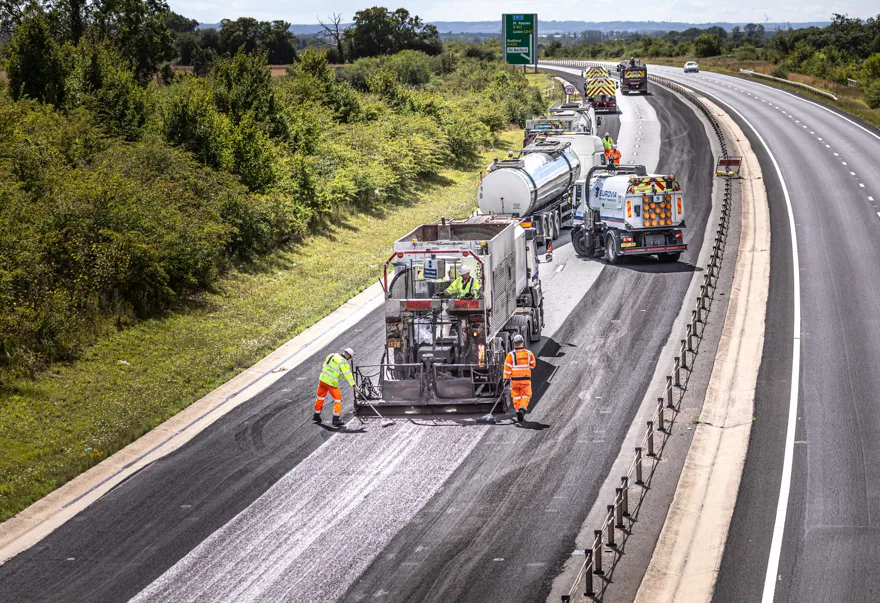
Hanson UK is trialling for the first time its low-carbon CarbonLock asphalt containing polymer modified bitumen (PMB) bio-binders on England’s strategic road network.
The trial, in partnership with England’s road agency National Highways, involves resurfacing the A30 Cutteridge to Alphington eastbound scheme near Exeter in southwest England.
Two types of binder are being used in asphalt mixes, according to Hanson UK, a supplier of heavy building materials to the UK construction industry and part of Heidelberg Materials. The first trial includes Nynas’s biogenic binder Nypol RE and the second trial uses the same asphalt mixture but includes Shell’s new bio-component binder Cariphalte CarbonSink.
The work is being carried out as part of its pavement category management framework agreement with National Highways.
Both asphalts were produced at Hanson’s Hingston Down plant and laid by Hanson Contracting. Each trial comprised a 40mm thickness surface course with 53 PSV aggregates for around 500m of both lanes of the eastbound carriageway.
Natural biogenic material absorbs and stores CO2, which is then ‘locked’ into the bio-component binders (bio-binders). The CO2 is not released back into the atmosphere, even when the asphalt is recycled.
In addition, the PMB binder used in both trials is expected to enhance durability and further extend the life of the asphalt, thus reducing the frequency of maintenance interventions, explains Adrian Hadley, technical head for asphalt and aggregate at Hanson UK. “We are committed to working with our clients to help them meet their net zero objectives and these trials are an excellent example of this.”
The work was coordinated by Atkins as part of the National Highways research project Future Asphalt Surface Course Linking to NH Net Zero under SPaTS 2. The performance of the two trial sections will be closely monitored to see how they compare with ‘standard’ PMB asphalt used elsewhere on the project.
An assessor from the British Board of Agrément (BBA) was in attendance when the asphalt was laid. The material is now undergoing a programme of in-house testing and monitoring with the intention of it being included within Hanson’s BBA HAPAS certified products.
“These trials are part of our feasibility study and whole-life benefits analysis of emerging low carbon technologies,” said Umesh Parajuli of the pavements team in the Safety Engineering and Standards Division, National Highways. “It will help us meet our 2040 net zero carbon deadline for construction and maintenance activities.”
National Highways, in partnership with Atkins, will monitor the performance of both sections and use the results of extensive laboratory testing carried out at Nottingham University to review whole-life carbon reduction with asphalt surfacing.
“We hope this trial containing PMB bio-binders will help to bring innovative technology into our specification,” said Parajuli.
National Highways is the wholly government-owned company responsible for modernising, maintaining and operating England’s motorways and major A roads – also known as the strategic road network (SRN) comprising 7,240km of motorways and major A roads.









